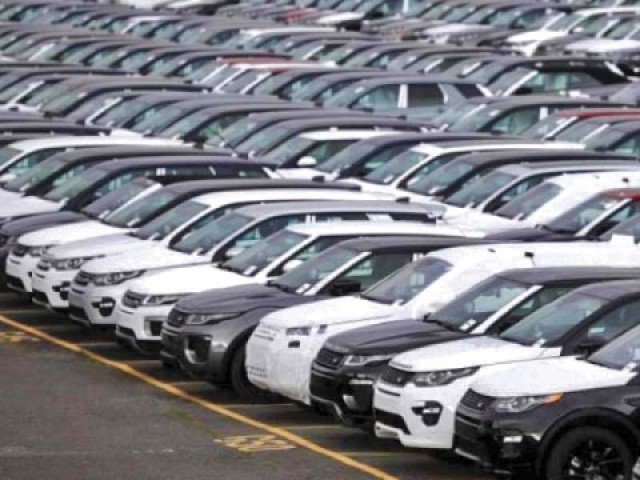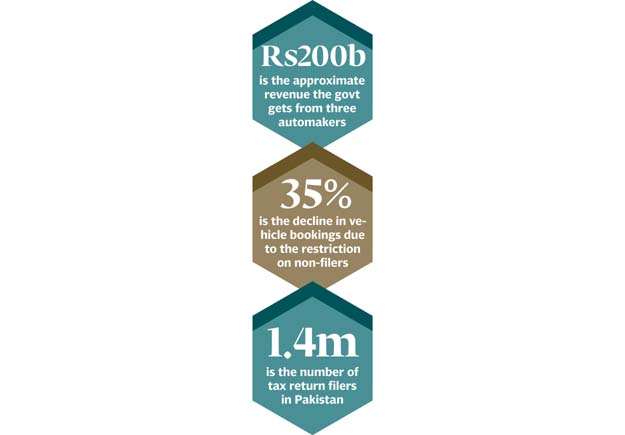
However, the government has decided to increase the rate of advance income tax on the purchase of vehicles by the non-filers. The previous Pakistan Muslim League-Nawaz (PML-N) government had barred the non-filers from buying new vehicles, irrespective of the engine capacity.
“The government is relaxing the restriction on non-filers in the purchase of locally manufactured vehicles of up to 1,300cc,” said Finance Minister Asad Umar while presenting the Finance Supplementary (Second Amendment) Bill 2019. “It is a good decision; the government had tried to take a similar step in the previous mini-budget, but political pressure prevented it from taking the step,” said Pakistan Association of Automotive Parts and Accessories Manufacturers (Paapam) former chairman Aamir Allawala.
“Forty per cent of Pakistan’s economy comprises agriculture, which has no tax return filers as the government ha0s exempted it from taxes,” he said. The restriction was a major setback to the auto industry as all three automakers - Pak Suzuki Motor Company, Honda Atlas Cars and Indus Motor - faced almost 35% decline in vehicle bookings, according to Allawala. The adverse effect had not yet been evident due to the backlog as car bookings were done in advance, he said. “So, the impact will appear in February or March.”

Mehran, Ravi and Bolan were the worst hit models from the restriction, he said. Pakistan only has 1.4 million tax return filers, which has restricted the advance of the auto market. In fact, due to the curbs on non-filers, the auto industry had started laying off employees because no industry could keep the workforce if it did not get orders, the former Paapam chairman pointed out, adding “now we hope that some additional demand will emerge after the relaxation.”
“The government earns Rs200 billion from the three carmakers. If their sales dip 35%, the state will also lose revenue of about Rs50 to Rs60 billion.”
IMC CEO believes auto sector can bring economic turnaround
Last time, the opposition had piled on the pressure on the PTI government for encouraging the non-filers, instead of punishing them. In fact, he said, the restriction was hurting the industry, its workers and the overall economy.
He was of the view that the Federal Board of Revenue (FBR) could easily widen the tax net as the auto industry had the data of vehicle buyers. “The FBR can approach that person to bring him under the tax net,” he suggested. The restriction did not work at all as in 2018 the number of tax return filers decreased compared to the previous year, Allawala said.
Moreover, the government also increased the duty on vehicles of 1,800cc or above engine capacity.
With challenges, Carfirst strives to expand operations
In the high engine category, only Toyota Fortuner was assembled in Pakistan and the increase in import duty was a good move, he said. “It only impacts the upper class, not employment, industry and the economy.”
Published in The Express Tribune, January 24th, 2019.
Like Business on Facebook, follow @TribuneBiz on Twitter to stay informed and join in the conversation.






1719053250-0/BeFunky-collage-(5)1719053250-0-270x192.webp)










COMMENTS (2)
Comments are moderated and generally will be posted if they are on-topic and not abusive.
For more information, please see our Comments FAQ